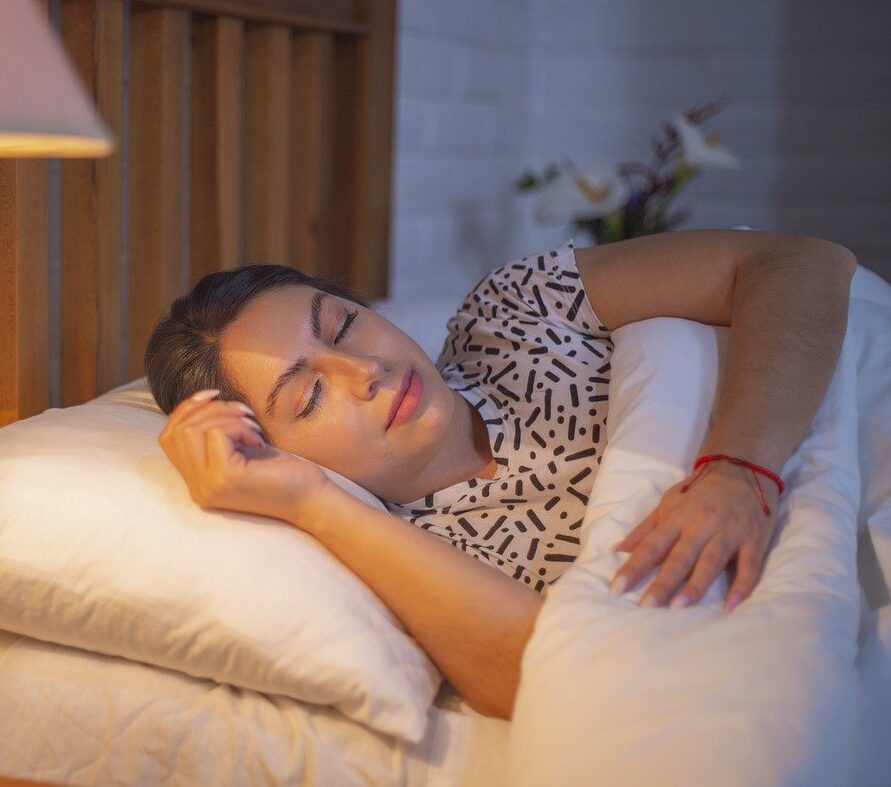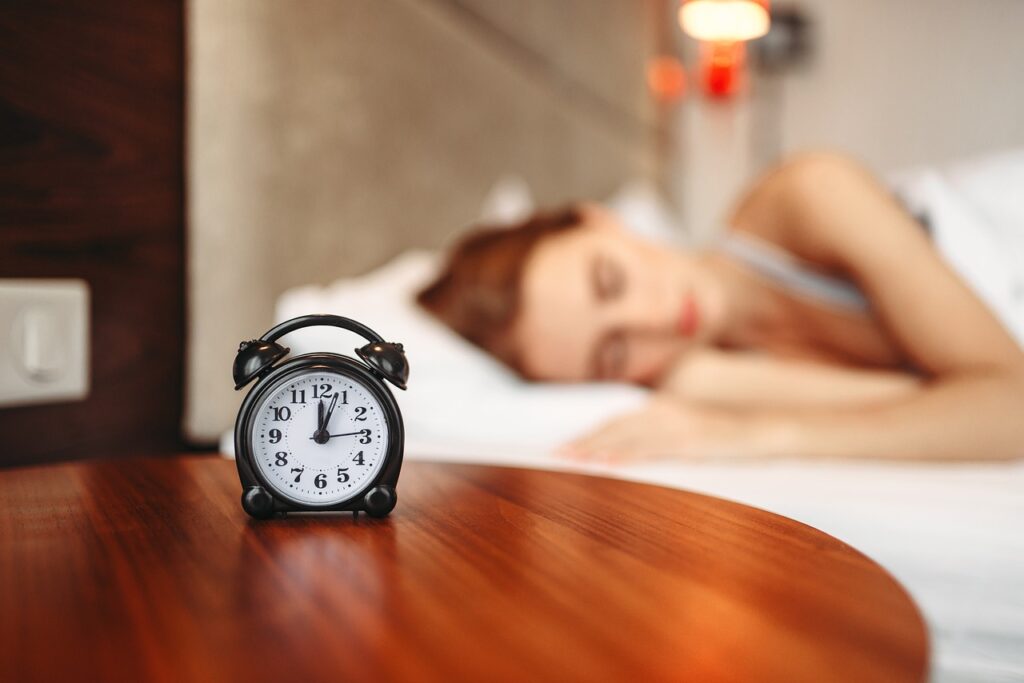Contents Overview
The Importance Of Sleep And Building Healthy Habits
Sleep is one of the most essential yet often overlooked aspects of our well-being. Just as our bodies need food and water to function, they also require quality sleep to recharge, heal and rejuvenate. Experts recommend that adults get 7–9 hours of rest each night, as this allows the body to repair itself, strengthen immunity and process information.
However, achieving rest is often disrupted by poor habits, both physical and mental, that unknowingly sabotage our wellness. As the saying goes, “A good laugh and a long sleep are the two best cures for anything.”
Power naps, when taken strategically, can also play a crucial role in rejuvenating our minds. A quick 20-minute nap during the day can boost focus, improve mood and reduce fatigue. However, overdoing it, such as napping too late or for too long can backfire and interfere with night time sleep.
Read more about power naps here: https://happilymanifested.com/power-naps-the-ultimate-guide/
Developing healthy sleeping habits isn’t just about duration; it’s about quality. If you want your body to heal and work at its best, getting good sleep is essential. Below, we will explore 10 common habits that may unknowingly be ruining your sleep and how to break free from them.
Mental Barriers
Irregular Sleep Schedules
Meaning: One of the biggest habits that ruin sleep is having an irregular sleep schedule. When we go to bed and wake up at different times each day, our body’s internal clock, called the circadian rhythm, gets confused.
This rhythm acts like a natural clock, telling our body when to sleep and wake.
When we constantly shift our sleep time by staying up too late at night or taking long naps during the day, it disturbs our circadian rhythm, making it difficult to fall asleep at night and wake up feeling refreshed.
For example, waking up at 7 AM on weekdays but sleeping until 10 AM on weekends can leave you feeling tired and unbalanced on Monday mornings.
Solution: To fix this, try staying consistent with a particular sleep schedule every day, even on weekends. It can vary by a few minutes, but the gap should never be in hours.
Go to bed and wake up at the same time to help your body develop a regular pattern. If your schedule has been irregular, start by adjusting it gradually, shifting bedtime or wake-up time by 15-30 minutes each day until it’s consistent.
Additionally, creating a relaxing night time routine, like reading a book or listening to soft music, can signal your brain that it’s time to wind down. Over time, maintaining a regular sleep schedule will help you sleep more soundly and wake up with more energy.
Overthinking & Stress Before Sleep
Meaning: One of the most common reasons people struggle to sleep is overthinking or stressing about past and future scenarios before bed. When your mind is racing with thoughts, whether it’s about work, relationships, health or the tasks waiting for you tomorrow, it becomes hard to relax and drift off to sleep.
Stress causes your body to release cortisol, a hormone that keeps you alert and awake. For example, lying in bed and replaying a conversation or worrying about an upcoming event can keep your brain active, making it much harder to fall asleep.
Solution: To resolve this, try calming your mind before going to sleep. One effective way is to create a “worry journal.” Spend 10-15 minutes in the evening or night writing down a list of things troubling you and then seeing their possible solutions.
This simple practice helps your brain feel relaxed by letting it address the issue and giving it a probable solution, signaling it to resolve it in the head, so that you’re less likely to dwell on it at night.
Another technique is practicing deep breathing or meditation to lower stress levels. For instance, inhale deeply for four seconds, hold it for four seconds, and exhale for four seconds- this can help you feel more relaxed and in sync.
Establishing a bedtime routine can also make a big difference. Activities like reading a calming book, taking a warm shower and listening to soft music can gesture the brain that it’s time to wind down.
Using Screens Before Bedtime
Meaning: One habit that can seriously harm your sleep is using screens right before bed. Whether it’s scrolling through social media, watching TV or playing games on your phone, the blue light from screens tricks your brain into thinking it’s still daytime.
This light blocks the production of melatonin, the hormone that helps you feel sleepy. As a result, it becomes harder to fall asleep, and your overall rest quality may suffer. For example, you might stay up an extra hour just watching videos, but that lost time can leave you feeling tired and sluggish the next day.
Solution: To solve this, avoid using your phone or other screens before bed, as the blue light can overstimulate the mind. Try to limit screen time at least 30-60 minutes before bed.
Instead of reaching for your phone, opt for relaxing activities like reading a book, journaling, or doing light stretches. If you must use a screen, consider using blue light-blocking glasses or enabling the night mode feature on your device to reduce the impact of blue light.
Forming a screen-free bedtime routine can work wonders for your sleep quality. For instance, listening to calming music and guided meditations prepares your mind for rest can help signal your brain that it’s time to wind down, making it easier to fall asleep naturally and wake up feeling refreshed.
Using The Snooze Button Excessively
Meaning: Hitting the snooze button multiple times might feel like a small luxury, but it can unknowingly harm your rest quality and leave you feeling even more tired. When you press snooze, your body tries to fall back into a light sleep cycle, but the constant interruptions prevent you from getting quality rest, causing “sleep inertia.”
For instance, if your alarm rings at 7:00 AM, but you keep snoozing until 7:30 AM, those split minutes of sleeping-in will only make you feel more restless and agitated.
Solution: To break this habit, set an alarm for the actual time you need to wake up and avoid using snooze altogether. If waking up without an alarm feels difficult, try using one that starts with soft sounds that gradually get louder. This mimics a natural wake-up process, making it easier to rise. You can also use affirmations as your alarm.
Another smart way is to place your alarm across the room so you have to physically get out of bed to turn it off. This small movement forces your body to get out of bed and move ahead with the day.
By following a good morning routine with consistency, you will naturally let go of the urge to snooze the alarm.
Read our article on 15 daily habits that you must include in your life to experience the magical effects they have to offer: https://happilymanifested.com/daily-manifestation-techniques/
Not Having A Bedtime Routine
Meaning: Not having a consistent bedtime routine can make it harder for your body and mind to relax and prepare for sleep. Without a routine, you might find yourself staying up late watching TV, scrolling on your phone and mindlessly working on things, leaving your brain refusing to fall asleep.
For example, if you go straight from answering emails to trying to fall asleep, your mind may still be in “work mode,” making it difficult to relax.
Solution: To resolve this, establish a calming bedtime routine that you follow every night. Start by setting a regular time to go to bed and stick to it, even on weekends. Then, create relaxing habits to do an hour before sleeping. For instance, you could dim the lights, read a book, meditate or listen to soothing music.
By keeping your routine simple and consistent, you’ll create a more peaceful environment that supports restful and refreshing sleep.
Physical Barriers
Consuming Caffeine And Alcohol Late In The Day
Meaning: Drinking caffeine or alcohol too close to bedtime can interfere with your ability to get a good night’s sleep. Caffeine, found in coffee, tea, energy drinks and even chocolate, is a stimulant that keeps your brain alert and awake.
If consumed in the late afternoon or evening, it can stay in your system for hours, making it harder to fall asleep. For example, having a cup of coffee at 5 PM could still affect your sleep at 10 PM. On the other hand, alcohol may make you feel drowsy at first but will disrupt the deeper stages of sleep, leaving you feeling tired and unrested the next day.
Solution: To resolve this, try to limit caffeine consumption to the morning or early afternoon. If you enjoy a warm drink in the evening, opt for decaffeinated tea or a calming herbal drink like chamomile.
When it comes to alcohol, avoid drinking it at least 3-4 hours before bed. If you’re socializing or having a drink with dinner, pair it with plenty of water to help your body process it faster.
Always ensure that you have both caffeine and alcohol in limits- as addictive as they are, too much of either will only cause you harm. By being mindful of what you consume and when, you’ll create better conditions for restful and uninterrupted sleep.
It will surprise you to know that there are healthier alternatives that caffeine offers to boost your energy levels, which include taking a quick walk, stretching or even having a glass of water.
Likewise, finding other ways to relax, such as reading or listening to soothing music, can replace the evening drink habit. Try decluttering! Whenever I clean my physical space, I sense my mind also getting cleaned.
Eating Heavy Meals Late At Night
Meaning: Having a heavy meal late at night can make it harder to fall asleep and disrupt the quality of your rest. When you eat large or heavy meals close to bedtime, your body has to work harder to digest the food. This can cause uneasiness, bloating and even heartburn, keeping you awake because of the restlessness.
For example, indulging in a greasy burger or a heavy pasta dish right before bed can leave you tossing and turning as your body struggles to process it.
Solution: To solve this, try to finish your dinner at least 2-3 hours before going to bed. This gives your body enough time to digest the food before you lie down.
If you feel hungry closer to bedtime, opt for light snacks that are easy to digest, like a banana, a handful of almonds or other dried fruits, a small bowl of yogurt, or seeds. These foods are gentle on your stomach and may even help improve your rest quality. You can also try herbal teas, especially chamomile.
Building a habit of earlier, lighter dinners can improve both your digestion and sleep. Pair this with a relaxing evening routine to signal your body that it’s time to wind down.
Over time, avoiding heavy meals late at night will not only help you sleep more peacefully but also contribute to better overall health.

Relying On Sleep Aids Too Often
Meaning: Using sleep aids, like over-the-counter pills or supplements, may seem like a quick solution for sleepless nights. Some even claim that they are good for health, which is quite debatable, as relying on them too often can do more harm than good.
While they might help you fall asleep temporarily, overuse can lead to dependence, where your body might get used to them and struggle to sleep without them.
Additionally, some sleep supplements may not even provide the deep, restorative sleep that your body truly needs, leaving you feeling tired and sleepy the next day.
For instance, taking sleeping pills regularly can interfere with your body’s ability to develop a natural sleep cycle.
Solution: To resolve this, focus on addressing the root cause of your restlessness instead of turning to artificial support as a first solution.
Start by building healthy sleeping habits. If stress or anxiety keeps you awake, try relaxation techniques such as deep breathing, meditation and journaling before bed.
These natural methods encourage your body to fall asleep on its own over time.
If you feel like you really need sleep aids, use them only in emergencies and under a doctor’s guidance.
Sometimes resorting to pills can actually be helpful during short-term challenges, like traveling and dealing with time differences to tackle issues like jet lag or temporary stress. However, you should remember not to rely on them as a long-term solution.
Engaging In Intense Evening Workouts
Meaning: While regular exercise is great for your health, doing intense workouts too close to bedtime can disrupt your sleep. When you exercise, your body releases adrenaline and endorphins, which can boost your energy levels and keep your heart rate elevated. This can make it harder for your body to wind down and prepare for sleep.
For example, if you do a high-intensity workout like running or weightlifting right before bed, you might find yourself feeling restless and wide awake, even though you’re physically tired.
Solution: To break this habit, try to finish your workouts earlier in the day, preferably in the morning or afternoon when your energy levels are naturally high.
If evening workouts are the only option, opt for lighter activities, such as yoga, stretching or a gentle walk, which can help you stay active while also relaxing your body without overstimulating it.
Allow at least 2–3 hours between your workout and bedtime to give your body time to cool down and return to a restful state.

Keeping Your Room Too Bright
Meaning: Having a bedroom that is too bright can make it difficult for your body to relax and rest. Your body’s internal clock, called the circadian rhythm, is highly sensitive to light.
Bright lights in your room, whether from streetlights outside, electronic devices or even bright lamps, can trick your brain into thinking it’s still daytime, making it harder to fall asleep.
For example, if you leave your phone screen on or keep your room lit at night, your body might not produce enough melatonin, the hormone that helps you fall asleep.
Solution: To resolve this, consider dimming the lights in your bedroom an hour before you plan to sleep. You can also use blackout curtains to block out external light, especially from streetlights.
As an alternative, you can use a sleep mask to cover your eyes or opt for a low nightlight if you do need some light in the room.
Dimming lights at least 30 minutes before bed can help your brain register the fact that it’s time to rest. This simple change can greatly enhance your sleep quality and leave you feeling more rested in the morning.
In conclusion, small changes to your daily habits can make a big difference in the quality of your sleep. By replacing things like late-night caffeine, heavy meals and intense workouts with a consistent routine and a calm environment, you will naturally improve your sleep quality. Healthy rest is essential for both body and mind and with these simple adjustments, you’ll be on your way to waking up feeling refreshed and energized each day- all this transformation in a short span of time!






2 thoughts on “10 Sleeping Habits That Secretly Sabotage Your Sleep”